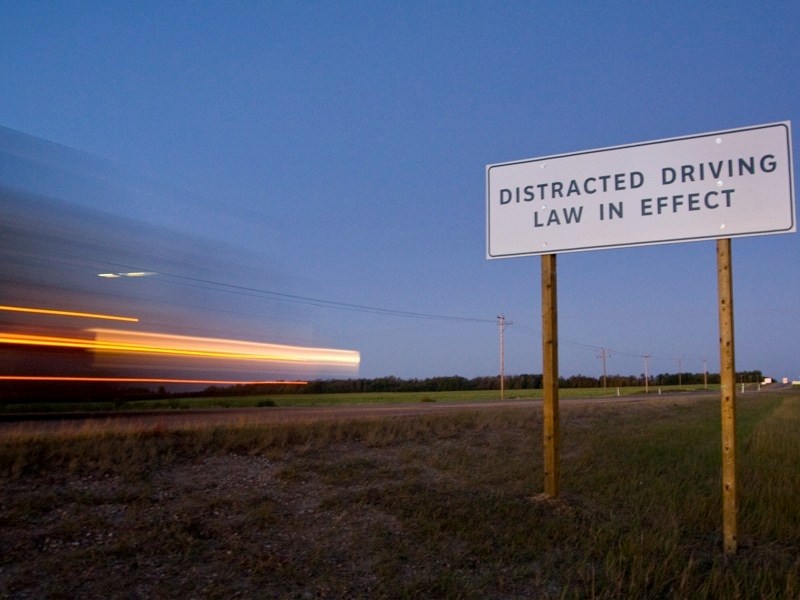Two weeks after the implementation of Alberta’s new distracted driving legislation, police in Boyle are favouring education over enforcement for the time being.
Since the law came into effect, officers (including Alberta Sheriffs and the traffic division) have given one ticket out for the offence, according to Sergeant Sonny Kim, Boyle RCMP detachment commander.
“They were instructed to give a little bit of an education period, I think that’s something important to the public,” he said.
He explained that it would take some time for people to realize that what they do instinctively, like picking up ringing cell phones, is banned under the new law.
Officers will focus on pulling over distracted drivers and making sure they understand the law, opting to let them off with a warning for now.
The new legislation gives police another tool to make the roads safer, he said, adding that being distracted has been punishable under the Alberta Traffic Safety Acts’ careless driving section since it was established.
“That has been enforced long before this law came out,” he said. “This is just specifically targeting distracted driving so that people are more aware of it.”
What a lot of people do not realize though, is that police can take even heavier measures against distracted individuals who threaten the safety of others on the road.
The $172 distracted driving ticket would be the low end, followed up by careless driving under the Traffic Safety Act, which carries a $402 fine and six demerit points. The most serious offence of dangerous driving, which falls under the Canadian Criminal Code, can result in a prison sentence and an automatic one-year driving prohibition.
The criminal charge is usually used in cases where drivers have caused an accident or injured another driver or pedestrian, Kim explained.
To mitigate your chances of being distracted while driving, the officer said you should always plan your route and have electronics off while driving. By planning where and when you will stop, you do not have to worry about checking for messages, he said.
Pets are also an issue, he explained, yet they are not often considered to fall under distracted driving. He recommended keeping dogs kenneled or having them securely leashed in the backseat while in transit.
Additionally, drivers who do want to talk on the phone should invest in a hands-free device to ensure they are in full compliance with the law. He added that pulling over to the side of the road to talk on a cell phone is not permitted and may still garner a fine.
“Education is going to be ongoing, but enforcement is going to be there as well,” he said.



